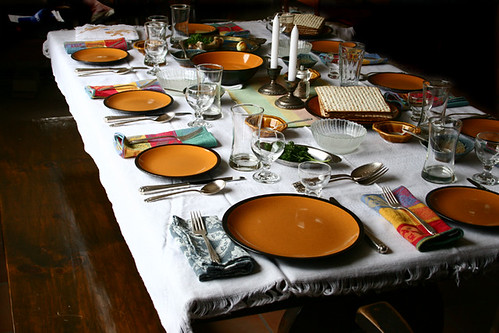 A year or two ago, the haredi magazine Yated published an article in its family section about the plight of the haredi woman in her forties. With a large number of children of different ages, she has to worry about shidduchim (match-making), teenage ups and downs, and elementary school issues. She may even have younger children who wake up at night. She is likely working full time, and might have responsibility for her elderly parents.
A year or two ago, the haredi magazine Yated published an article in its family section about the plight of the haredi woman in her forties. With a large number of children of different ages, she has to worry about shidduchim (match-making), teenage ups and downs, and elementary school issues. She may even have younger children who wake up at night. She is likely working full time, and might have responsibility for her elderly parents.
Yet according to the author, all of this is nothing—not when compared to the biggest challenge of all: Getting along with her new sons- and daughters-in-law.
The Mishnah touches on the difficult position of a new daughter-in-law in a discussion of the rituals surrounding the Passover sacrifice.
According to Mishnah Pesahim 7:13, each family group sat together to eat the sacrifice, to the exclusion of any other family:
Two groups (havurot) eating the Pesach sacrifice in a single house must each turn their faces away from each other, and the hot water urn is in between them [to separate them], and when the steward [serving both, but who belongs to only one group] dilutes the wine with hot water [and pours for the other group], he purses his mouth shut [so as not to swallow] and looks away until he returns to his own group, and then he can eat. And the bride can look away from her group. (Link to Hebrew text)
The thoughts of a new bride, in the first year of marriage, are with her parents and her childhood home. She has permission to look away from her husband and his family, where she may not feel completely comfortable. Also, as mentioned in the gemara, a young, shy bride might prefer to avoid scrutiny by averting her face.
The next Mishnah, 8:1, mentions that an unmarried woman eats the Passover sacrifice with her father, while a married woman eats with her husband. But in the first year after marriage, the bride can choose where she will eat.
In modern Jewish families, couples often clash over where to spend the holiday. Some communities have a tradition that a married couple spend the first seder after the wedding at the wife’s home, alternating thereafter. It helps if all of a couple’s married children are on the same schedule so they can see each other every year. In some traditions the sons are expected to be at the seder with their father every year, causing consternation for the bride whose family may have a different custom.
Pesach can be an especially difficult time for all who no longer celebrate with their original families, and miss the traditions of home.
Whether you find yourself with your birth family, the in-laws, the out-laws, your spouse, children, grandchildren, old or new friends, I wish all readers a meaningful and enjoyable Pesach.
(This mishnah was taught by my cousin, the scholar Chana Safrai z”l. I saw the video of her lecture at a memorial event on the fifth anniversary of her death.)
More Passover reading:
Passover Recipes and Cooking Techniques
Inexpensive Family Day Trips in Israel
Chag kasher v’samei’ach to you and your family!
Thank you! Sorry for the late reply, hope your Pesach was enjoyable.